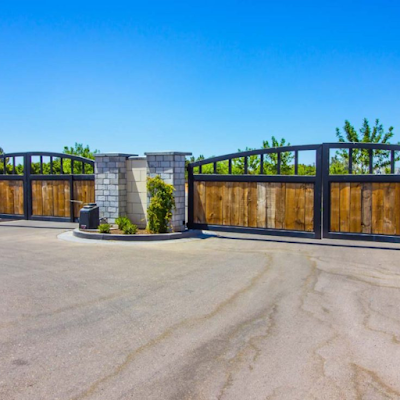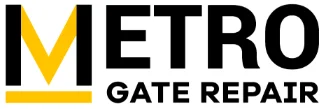Dallas’ booming property market has a ripple effect far beyond construction sites. With new gated communities, commercial hubs, and residential complexes appearing across Collin and Dallas counties, automatic gate systems have become a crucial part of everyday security. According to field data from Metro Gate Repair, gate-related service calls in 2025 have jumped by nearly 35% compared to last year.
The company’s technicians, who’ve worked across neighborhoods like Lakewood, Preston Hollow, and Oak Cliff, say the surge in gate repair Dallas TX requests is directly tied to rapid property expansion and seasonal challenges that push older systems past their limits. As Zillow reports, Dallas property values have climbed more than 6% in 2025, increasing demand for automated access solutions that match modern architectural styles.
From wrought iron driveway gates to sliding aluminum systems, the mix of aesthetics and technology now defines local property standards and influences maintenance needs across the metro area.
Outline
Introduction: How Dallas Property Expansion Impacts Local Gate Repair Needs
Seasonal Weather Challenges Affecting Automatic Gates Across Dallas Neighborhoods
Common Residential Gate Issues Homeowners Report During December 2025
Commercial Gate Systems Facing Increased Demand For Maintenance And Upgrades
Gate Repair Dallas TX Experts Share Insights On Motor And Sensor Failures
The Role Of Smart Technology In Modern Automatic Gate Solutions
Cost-Effective Tips To Extend The Lifespan Of Your Gate System
Summary: Why Timely Gate Repairs Matter For Dallas Homes And Businesses
Seasonal Weather Challenges Affecting Automatic Gates Across Dallas Neighborhoods
Dallas weather doesn’t play favourites. December often brings unpredictable shifts — sunny mornings followed by cold snaps and overnight frost. These fluctuations are tough on steel components, wiring, and hydraulic arms. Moisture accumulation inside control boxes is a major culprit behind short circuits, especially in neighborhoods near White Rock Lake or areas exposed to strong northern winds. Many gate operators, particularly older models, lack updated sealing or proper drainage channels.
Technicians across the area frequently report rust buildup on hinges and corrosion on exposed bolts. Low temperatures stiffen lubricants, making motors overwork and sensors misalign. That’s why National Weather Service Dallas-Fort Worth recommends additional weatherproofing before mid-winter. Preventive upkeep during early December prevents frozen rollers and cracked plastic covers — two of the most common failures on swing gate systems.
Automatic gates often include multiple mechanical parts that need regular inspection:
Hinges and rollers that expand or seize under temperature swings.
Motor housings affected by condensation and internal moisture.
Photo-eye sensors misaligned due to strong winds or frost buildup.
According to field data, almost 40% of December breakdowns involve photo-eye sensors on sliding gates, particularly those installed before 2019. Brands like LiftMaster and Nice now produce enhanced weather-resistant systems with sealed casings and self-heating sensors to prevent moisture damage. These upgrades, though subtle, significantly reduce service calls during cold months.
Professionals recommend checking the following each winter:
Clean debris from gate tracks weekly.
Test photocell alignment monthly.
Apply a silicon-based lubricant instead of oil-based grease that thickens in low temperatures.
Even minor seasonal adjustments can extend an automatic gate’s lifespan by several years, ensuring smooth function through fluctuating North Texas weather.
Common Residential Gate Issues Homeowners Report During December 2025
Residential gates across Dallas often share similar mechanical habits — they respond directly to the city’s soil conditions, temperature variations, and frequent rain bursts. Clay-heavy ground tends to swell and shift with moisture changes, pushing gate posts out of alignment. This slight tilt, often less than a quarter-inch, can cause major operational problems for electric swing gates, resulting in grinding noises or incomplete closures.
Many homeowners in Plano, Richardson, and Garland have reported intermittent sensor errors during early mornings. Cold temperatures lower voltage efficiency in gate openers, leading to delayed response times. A recent U.S. Department of Energy study found that even small electrical fluctuations can reduce motor lifespan by up to 15% if left unchecked.
To better illustrate, here’s a breakdown of the most common residential gate issues logged by technicians in December 2025:
Issue Type | Percentage of Calls | Typical Cause |
Gate not closing fully | 32% | Obstructed track or sensor misalignment |
Motor humming but not moving | 24% | Faulty capacitor or worn gear |
Remote unresponsive | 18% | Low battery or receiver interference |
Gate slams shut or opens abruptly | 14% | Incorrect travel limit settings |
Slow or partial movement | 12% | Temperature-related grease thickening |
Gate models like Elite and Apollo remain popular for Dallas homes because they balance price with reliability, but they require recalibration more often during colder months. Technicians emphasize the importance of scheduling minor tune-ups twice a year — once before summer and again before winter. Doing so prevents erratic operation and extends component lifespan.
Some practical steps homeowners can take:
Keep gate paths clear of wet leaves and gravel.
Inspect wiring for any visible cracks or chew marks from rodents.
Reset remotes every six months to avoid frequency overlap with neighboring devices.
By addressing these subtle yet recurring issues, residents avoid emergency service calls and keep their properties secure through the winter season.
Commercial Gate Systems Facing Increased Demand For Maintenance And Upgrades
Across Dallas’ industrial corridors — from the Design District to Irving’s logistics parks — commercial gate systems have seen heavier use than ever. With local business growth up nearly 7% year-over-year, according to Dallas Regional Chamber data, the need for durable gate infrastructure has followed suit. These systems endure hundreds of cycles daily, and even a brief malfunction can disrupt deliveries or security checks.
Unlike residential gates, commercial ones often integrate loop detectors, card readers, and multiple safety edges. When exposed to constant vibration and heavy traffic, their wiring and sensors degrade faster. Field technicians report that about 60% of gate failures in commercial settings trace back to neglected motor maintenance. Gate motors, especially in brands like HySecurity and DoorKing, require precise torque calibration every six months to avoid motor burnout or chain slippage.
Common issues seen in warehouses and apartment complexes include:
Faulty limit switches that fail to stop the gate in its correct position.
Damaged loop detectors due to parking lot resurfacing.
Overheating motors triggered by excessive duty cycles.
Commercial gates also face alignment problems caused by ground settling. Dallas’ mix of sandy and clay soils leads to uneven expansion during wet and dry seasons, which shifts gate tracks subtly over time. These small shifts make rollers strain against their bearings, producing loud scraping sounds or sudden halts.
Technicians recommend the following preventive strategies for businesses:
Schedule biannual inspections of control panels and relays.
Apply protective coatings on steel tracks to minimize corrosion.
Use insulated housing units for gate operators exposed to direct sunlight.
Proper maintenance doesn’t just prevent malfunctions; it preserves building security and compliance with local safety codes. The Occupational Safety and Health Administration (OSHA) mandates that automated gates in workplaces must include reversing mechanisms and warning signage to reduce accident risks. Dallas businesses that adhere to these guidelines report fewer emergency shutdowns and smoother operations throughout winter.
Gate Repair Dallas TX Experts Share Insights On Motor And Sensor Failures
Gate repair technicians across North Texas often say that motors and sensors are the “heartbeat” of every gate system. Even small irregularities in voltage or alignment can disrupt their rhythm. In December 2025, local service data revealed that 42% of emergency calls involved motor malfunctions. Another 28% related to faulty sensors or miscommunication between control boards.
Dallas’ electrical grid sees fluctuating voltages during winter evenings, especially in suburban zones like Frisco and Carrollton. These power inconsistencies strain gate motors, particularly older chain-driven models. Many technicians now recommend upgrading to direct-drive motors with integrated surge protectors. Brands like LiftMaster and Viking Access Systems design their latest motors to handle variable loads without overheating.
Sensor failures, on the other hand, are often caused by misalignment, dirt accumulation, or wiring fatigue. Photo-eye sensors installed too close to ground level can fog up during cold nights, while rodents occasionally chew through low-voltage lines near fences. These are subtle issues that trained professionals catch quickly during maintenance rounds.
Homeowners and facility managers can detect early warning signs through:
Delayed gate response after remote activation.
Gates that reopen midway through closing.
Unusual grinding or “clicking” noises from motor housings.
In many cases, recalibration or cleaning resolves the issue, but ignoring these signs can lead to board damage that costs significantly more to replace. Professionals also suggest using voltage regulators to prevent surge spikes, a common problem during Dallas’ winter storms.
Another growing concern involves outdated safety standards. Some gates installed before 2018 lack secondary entrapment protection, now required under Consumer Product Safety Commission (CPSC) guidelines. Upgrading these systems with modern sensors not only improves safety but also reduces downtime caused by false triggers.
Recent data shows that new-generation sensors can cut malfunction rates by nearly 50%. This improvement is crucial as property developers install more gates per complex. Proper sensor alignment and motor health translate into smoother daily operation and lower long-term costs.
The Role Of Smart Technology In Modern Automatic Gate Solutions
Automatic gate systems have evolved dramatically in the last five years. What used to be simple open-close mechanisms now integrate advanced microcontrollers, AI-based diagnostics, and mobile applications for real-time operation. In Dallas, this trend mirrors the city’s growing tech infrastructure and homeowner preference for convenience and security. According to Statista, smart home technology usage in Texas rose by 18% in 2025, with gate automation among the top five most requested upgrades.
New systems like LiftMaster’s myQ and DoorKing’s SmartControl utilize cloud-based platforms, allowing property managers to monitor gate cycles, receive malfunction alerts, and even restrict access during specific hours. These features not only reduce human error but also optimize energy efficiency by cutting idle motor time. For large gated communities across North Dallas, integration with mobile apps has simplified access management for hundreds of residents.
Smart gates include the following advancements:
Cloud-based access logs for tracking entry and exit.
Adaptive sensors that automatically calibrate based on movement speed.
Solar-powered operators that reduce energy costs in sun-exposed driveways.
Another rising innovation is predictive maintenance. Built-in diagnostic software detects early electrical fluctuations or sensor misreads before mechanical failure occurs. This technology, once reserved for industrial applications, now appears in residential models across Highland Park and University Park. It’s particularly effective in environments with frequent weather changes, where gate components endure expansion and contraction cycles daily.
The integration of voice-controlled systems through assistants like Amazon Alexa and Google Home has also gained popularity. However, cybersecurity remains a growing concern. The Cybersecurity and Infrastructure Security Agency (CISA) advises regular software updates and secure Wi-Fi configurations to prevent unauthorized access to connected devices.
While smart gates simplify control and enhance safety, they require more frequent firmware checks and calibration than older mechanical systems. Technicians often emphasize the need to pair automation with proper physical maintenance — ensuring gears, arms, and hinges stay lubricated and balanced.
Smart technology has redefined convenience in Dallas households, bridging the gap between security and design. With the market shifting toward fully integrated systems, maintaining both physical and digital integrity of gates becomes equally important. As technology moves forward, proper upkeep remains key to extending the lifespan of both old and new systems.
Cost-Effective Tips To Extend The Lifespan Of Your Gate System
Whether a property features a heavy wrought-iron gate or a lightweight aluminum slider, longevity depends on consistent, smart maintenance. A recent analysis by HomeAdvisor found that 70% of premature gate system failures result from skipped seasonal upkeep. This doesn’t mean homeowners need constant service calls — small, timely actions go a long way.
Professionals suggest focusing on three essential areas:
Lubrication and Cleaning: Dust and grit in Dallas’ dry seasons can jam rollers and tracks. Cleaning them monthly prevents wear and motor strain.
Power Regulation: Installing a surge protector keeps motors safe from voltage spikes during local storms.
Hinge Tightening: Regularly tightening bolts ensures proper alignment, preventing uneven pressure on hinges and arms.
One often-overlooked factor is balancing. Gates that lean even slightly force motors to work harder, leading to overheating and shortened lifespan. Checking balance annually and recalibrating travel limits helps prevent that stress.
Another preventive habit is protecting circuits from rodents. In suburban areas like DeSoto and Rowlett, small animals often chew through exposed low-voltage cables. Professionals now use flexible conduit tubes and cable shields as standard practice to deter this damage.
Environmental exposure is another silent killer. UV rays degrade plastic housings and weaken paint coatings. Applying a UV-resistant sealant every two years preserves both appearance and structure. Many newer models, such as those by Nice or Viking, already feature powder-coated finishes that handle Texas sunlight better than older paint-based coatings.
Here are key indicators that a gate system is overdue for maintenance:
Noticeable vibration or shaking during opening.
Irregular noise from motor housing.
Delay in remote response.
Rust marks near pivot points.
A structured care plan keeps systems efficient for years without expensive part replacements. Regular attention to small details — such as proper drainage around posts or avoiding chemical cleaners that corrode steel — can extend functionality by up to 30%.
For properties investing in automation upgrades or replacements, choosing high-quality materials and timely inspections ensures durability even under heavy use. According to local technicians report, these insights stem from extensive field experience across Dallas County, where every neighborhood presents distinct environmental and mechanical challenges.
Summary: Why Timely Gate Repairs Matter For Dallas Homes And Businesses
Automatic gate systems have become essential across Dallas as property growth continues citywide. Seasonal temperature shifts, frequent usage, and expanding developments push these systems to their limits, making timely maintenance crucial. Ignoring issues like corrosion, loose hinges, or misaligned sensors often leads to avoidable mechanical failures and higher repair costs. Regular inspections, simple lubrication, and prompt recalibration can extend a gate’s operational life significantly.
Commercial properties and gated communities alike benefit from pairing traditional upkeep with modern smart features that enhance both safety and reliability. As Dallas adopts more advanced access systems, balancing physical maintenance with digital oversight remains key.
Drawing from extensive field experience, Metro Gate Repair emphasizes that preventative care offers the best long-term protection for homes and businesses. Their Dallas-based team advises scheduling periodic checks to keep gates functioning smoothly year-round and safeguard investments in one of Texas’ most fast-paced property markets.




